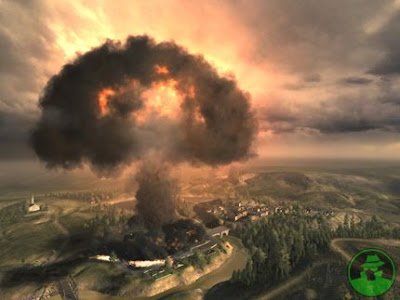
One defining issue: the Middle-East (President Obama and Palestine Autority President Abbas)
President Obama is making every effort to help America get out of the present-day economic slump and to contribute to the broader stability of our world. Thus far much criticism accompanies his administration. It is not my competence to judge his performance nor is this my intention in addressing above question. However, it occurred to me that Obama’s presidency and the reputation it has gained to date have much in common with the days of Jimmy Carter.
I was reminded of this when just recently the newspaper reported Washington’s demand to President Abbas of the Palestine authority that he should visibly move towards new talks with Israel. If not, the item stated, the US would be less than forthcoming in continuing its current relations with the Palestine authority. It is the kind of diplomacy that most people who are familiar with the history of US Middle-East policies will find all too familiar. What must be said, has to be said.
President Jimmy Carter achieved some notable results during his presidency, especially between Egypt and Israel, but otherwise got hopelessly stuck in the broader process in the Middle-East after the gross misjudgment in his time of the revolutionary events in Iran and of the forcefulness of Muslim retaliation after decades of dictatorial, US sponsored, rule of that country. It caught him by the tail and this – directly and indirectly – added to his reputation as an ineffective president.
But my point is not the similarity of the pressures which Obama has to face in comparison with those that faced Carter. They are numerous nonetheless, both in terms of international politics and economy. One could say that Obama faces them in even more forceful terms and that, like Carter, he has to do so against much political “Washington adversity.”
I am rather looking at the potential – further – similarities ahead. As time progresses, the pressure is mounting towards Obama’s campaign for a second term. It will be by virtue of a second term that his presidency can rise in stature and remembrance. No doubt many stalemates by which his administration is being pestered today will only be resolved in the event of Obama’s re-election.
Jimmy Carter stumbled over much bad luck, whatever his good intentions or efforts. One of them was the advent of an impressive, ultimately successful competitor by the name of Ronald Reagan. A caliber of similar weight will be needed to topple Obama, I am quite sure. There is no indication as yet whether the Republicans will bring out such a caliber – it is too early days – but it is a serious possibility nonetheless.
Obama’s predecessor Jimmy Carter gained his ultimate stature most of all through his post-presidential initiatives, up to the present day. His presidency may linger in the shadows of history but the person does not. He his highly regarded for his stance in humanitarian affairs and for his role in international dispute settlement. This is by no means irrelevant, for any individual.

Jimmy Carter, a highly effective former US President
Thus, however his presidency may work out, Obama – in principle – will still have an entire life after it. It would not surprise me if his greatest contribution to America’s welfare and to the stability of our world will only be made in his post-presidential years, reaching both beyond Carter’s and Bill Clinton’s, whose status may well have dwindled under pressure of merely being the husband of Obama’s Secretary of State.
Having said this, I would see Obama’s strategy for becoming a respected and influential ex-President being of no less importance than every strategy he designs to win a second term.






